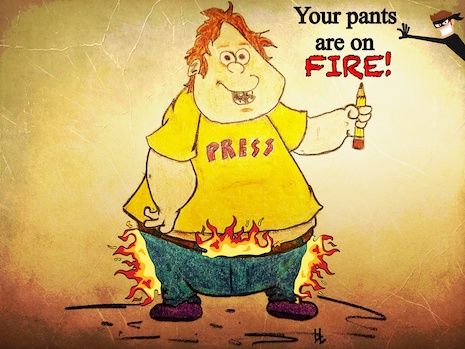Imaginary Law of Fiction: The Legal Basis To, Well, Make Up Stuff
I’ve been doing the “help writers get it right” for a long, long time, and during all those years I’ve seen a ton of questions and discussions that would buckle the knees of the even the most seasoned detectives and coroners.
Some of the questions I see from writers are out there. I mean WAAAAYYY out there, and that can be a good thing … or a bad thing. It depends.
I know, it’s tough to come up with new material, ideas, and ways to keep readers interested, but you do it and you do it day-in and day-out, and you do what you do extremely well. I can say this with confidence because I read your books.
But that’s not the point of this post. Instead, I want to remind everyone that you’re writing fiction, which means you’re legally authorized by Chapter 18 Section 12 of Imaginary Law to make up stuff. Really, it’s true. Every single state and country has this law in place. Google it (wink).
Most of you turn to experts who provide factual information as responses to your questions, and those responses typically fact-based and not opinion. Their information is based on their knowledge and real-life on the job experiences. It’s up to you to transpose, mold, and shape those facts into a fictional story that’s believable. Doesn’t have to be true, just believable make-believe, even if just for a few moments, in the mind of the reader.
If you want your hero’s revolver to have the capability of firing 75 rounds while simultaneously ejecting each spent round, then so be it. But you’ve got to show why such a gun is “reality” in your story because readers know that in the real world a cylinder of that capacity would be the size of a dinner plate. Imagine, too, the size of the holster that would also need an explanation.
Or, you insist upon having the odor of cordite spilling from every single page of your book. Well, you know that’s not possible unless you’re writing historical fiction. However, suppose your villain stumbled across a perfectly preserved crate of cordite-stuffed ammunition left over from WWII? That would work, right? Easy explanation.
If you, during your fictional meanderings, absolutely must have the FBI solve every single murder, rape, robbery, trespassing, and Peeping Tom case that occurs in the country, then you’ll again need to find a means to explain why, because we all know the FBI does not work local murder cases. It’s just not what they do. Nor do they work all kidnapping cases.
But this is an easy fix. Have the small town local cops ring up the nearest FBI field office and ask for help. Remember, though, you’d need to have an explanation as to why the county sheriff or state police wouldn’t/couldn’t help, because that’s the typical route taken when assistance is needed. Rarely do locals call on the FBI for local stuff. But you’re the master of dreams and ideas and wacky notions, so coming up with reasons why things happen the way they do in your mind is what you do best.
So please do feel free to use your imaginations to write your fictional concoctions. However, if you’re going for accuracy stick to what the experts tell you. And please, whatever you do, don’t argue with a professional when the facts they provide don’t fit with what you wanted to happen in your story. Asking the same question over and over again, hoping they’ll finally say what you want them to say, is not going to change the facts.
 Simply take the information provided and make it fit into the tale. If that doesn’t work figure a way to show why it didn’t.
Simply take the information provided and make it fit into the tale. If that doesn’t work figure a way to show why it didn’t.
If readers wanted a strictly factual accounting of a story they’d read the news or pick up a true crime book.
Okay, maybe reading the news was a bad example of factual information, but you know what I meant.
So, by the power granted to you by Chapter 18 Section 12 of Imaginary Law, have at it!







Thanks! Just what I needed to hear today, even though it’s obvious.
Lee, I love your posts. Thank you for this!
Lee, I thought there might be some in a museum somewhere. LOL
I like that piece of legislation, Chapter 18 Section 12 of Imaginary Law. It should come in very handy! Thanks for the dispensation.
Not a clue. That was before my time, Cathy. How old do you think I am???
Lee, I’ve never handled ammunition old enough to contain cordite. What does it smell like? I’m just curious.